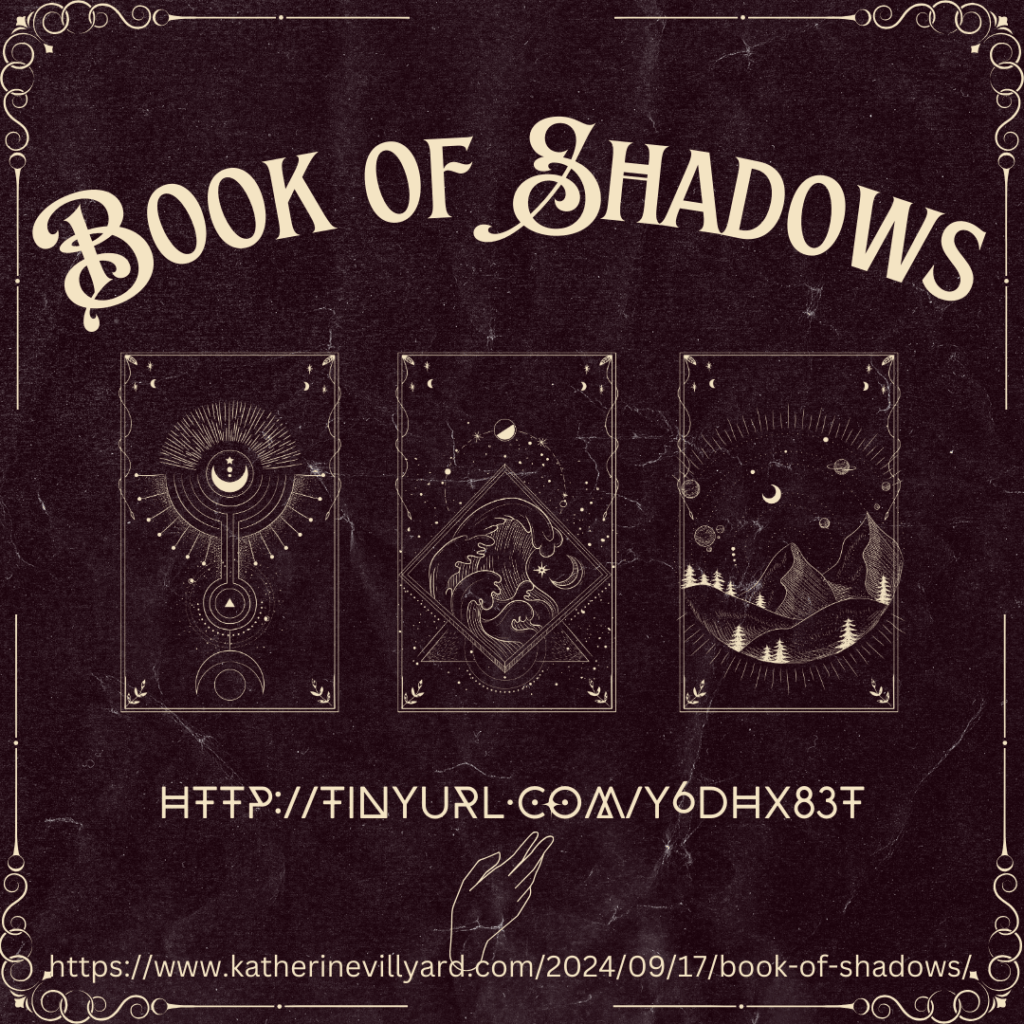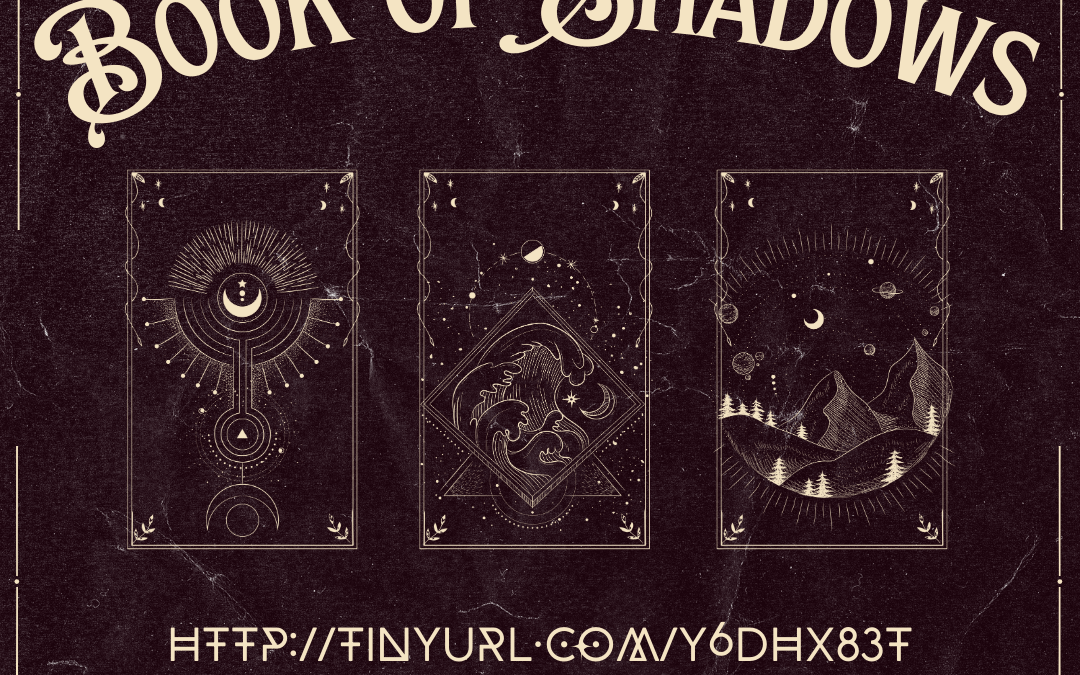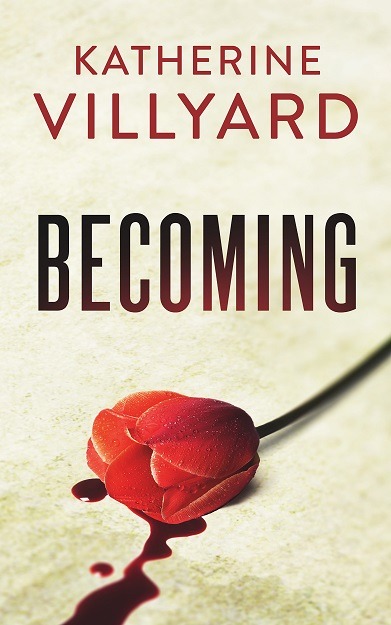This story was originally published in Love Stories.

When I got home, there was a statement from my retirement account in the mailbox and an eviction notice taped to my front door. I tore open the account statement. My IRA was worth nothing. I guess I shouldn’t have invested in my company’s stock. I crumpled it up and opened the door.
Inside, everything I owned was in boxes. I’d sold my sofa and TV, so there was nothing but boxes and carpet. I’d sold most of my books to the used bookstore. I supposed I could have another garage sale and sell the bookshelves and kitchen stuff, but the eviction notice said I had a week so I’d better hurry. Mom didn’t have the money, and I’d cut up my credit card when they jacked up the interest to 29%. No U-Haul for me. Maybe I should abandon all this crap and drive to Mom’s, if I could raise money for gas.
I was not going to abandon my computer or my father’s Book of Shadows. I couldn’t do contracts without the computer, and I wasn’t going anywhere without the book. I pulled it out and opened it. Inside, spells in my father’s handwriting, the sum of his magical life. It even contained the spell they used to conceive me. I turned to the page on fast money.
“Hail, Habondia, Lady of Plenty,” I began. I felt a sudden surge of grief for my father, but took a deep breath and went on. There were words of power, and I spoke them, calling Her to me.
It’s important to visualize during a spell. I tried to remember when I felt really prosperous; the measure of my success.
My Daddy’s pride in me. That was what always made me feel successful. I’d never feel that again. He was gone.
As the spell demanded, I took out my last twenty dollars and burned it on the stove. Which was just as well; the spells that demanded a trade were more reliable that the spells that asked for something without giving something in return. Those relied on luck, and it seemed I had little or none to spare.
My father had been gone a little over two years. Everyone said it would get better over time. Ha. He was the one who believed in me. He was the one who taught me magic. When I decided to get my degree in computer science, he was the one who never doubted for a moment that I could do it.
That was before the cancer.
Great workings often shorten the lives of magicians. He never told me what it was that he had done, what had been worth giving up part of his life. What had been worth the cancer eating his bone marrow, the dark magic of chemotherapy that had robbed him of his thick black hair? The change to his tastebuds so only ice cream, popsicles, and cotton candy tasted good had been in exchange for a few months before the cancer had won.
Had the cancer itself been a price? And which would be worse, the cancer being meaningless or the cancer being the price he paid for something else?
The phone rang. I answered it.
“Sandy?” my mother said. “Anna Rodriguez just paid me some money she owed me, so I’m sending it to you Western Union. You can pick it up at the office on University and Oak.”
“How much?” I asked.
“Two hundred,” she said. “Is that enough?”
“It’ll do,” I said. “Thank you.”
Clothes, computer, college diploma, Book of Shadows. The landlord could sell the rest for back rent, or throw it out for all I cared. I went to load the car.
I piled the computer equipment on the desk and looked around. My mother had kept my bedroom the same as I had left it, which meant that the Backstreet Boys posters had to go.
I hung up my clothes in the closet, next to my prom dress and cap and gown, both wrapped in plastic. I pulled the thumbtacks out of the posters and rolled them up to store them in the closet. Then I flopped down onto the bed, still fully clothed, and slept.
When I woke up, I set up my computer. I’d have to ask Mom to get dialup so I could email out resumes. I headed downstairs, where Mom was waiting at the table.
“Phew,” she said, and wrinkled her nose.
“Can we get some kind of Internet so I can email out resumes?”
“Does that work?” She poured me a cup of coffee and handed it across the table. “In my day we pounded the pavement.”
“Well,” I said, “you didn’t write websites.”
She shrugged. “Maybe you should consider something else, since that’s so slow. Substitute teaching. Clerical work.”
I made a face. I’d tried that. They said that they wouldn’t take me for either, since I was guaranteed to leave them the second anything came along in my field. Ha. I’d been unemployed for two years, ever since the company went under, and no amount of magic seemed to be getting me a job.
“I’m sorry,” she said, raising her hands. “I always end up saying the wrong thing. If your father were here…”
I sighed. “Is there anything I can do to help out?”
“I have some software I’d like you to install,” she said. “You know I’m hopeless. Your father always handled the computer. Quickbooks; Jennifer says that she couldn’t run her shop without it, so I bought it and now I can’t figure out how to set it up.” She started to laugh. “Hopeless.”
“I’d be happy to,” I said.
“Just sign up for whatever you need; you can put it on my credit card.” She got up and poured herself some more coffee, then looked back at me. “Have you tried prosperity spells?” she said.
No, mother, that never occurred to me.
“I miss him, too,” she said.
“Sometimes I think I would give up ten years of my life to get him back.”
“Don’t you say that,” she said. She grabbed the salt shaker and rushed to the sink, filling a glass with water and pouring salt in. She sprinkled me with salt water, then picked up the knife from the butter dish and drew a circle on the kitchen floor around me with it. “You came from the ocean; the ocean will protect you,” she said, and sprinkled me with more salt water. “Never say anything like that again.”
My father’s Book of Shadows had a spell to raise the dead, tucked in between the spell to meet your true love and the spell they used to conceive me, which partially involved making love on the beach–too much information, if you ask me. The spell was about a third of the way in, written in his youthful handwriting. Based on the spells around it, he’d probably learned it from Nana, or maybe even great-Aunt Carmella.
In the margin, he had written, “Don’t even think about it, Sandy,” in the shaky, pain-addled scrawl he used at the end of his life. It made me angry. Partly because I was tempted. I really would give ten years of my life to get him back, but I knew that wouldn’t be enough. Besides, I knew my father wouldn’t want me to shorten my life for his, and that was the price. We’re all born with a finite bit of life, and if I wanted him to have more, I had to give him some of mine.
At the bottom of the page, in his normal handwriting, it said, “Sandy, ocean child, my greatest bit of magic, my baby girl.”
I couldn’t see the page any more; my eyes were blurry with tears. I closed the book.
“Hail, Athena, Lady of Wisdom,” I said, and lit a candle. “I’m here to ask for a job. It’s been two long years, Lady, and since it was a very mental job, I’m asking You for Your help.”
I put a resume in the candle flame. It wasn’t much of an exchange, but it was the best I had. The resume wouldn’t light, no matter how long I held it in the flame. I lowered the paper, and extinguished the candle flame.
Offering rejected.
I was desperate, and not yet ready to give up. So I relit the candle. “Hail, Athena, Lady of Wisdom. I need a job. Please help me.”
I placed the resume in the candle flame. It still wouldn’t light. I lowered the page, and the flame spread across the underside and singed my fingers. I dropped the resume and swore.
At which point it ignited, taking the carpet with it.
“Fuck!” I leapt to my feet, and stomped on the flames until they were out. Then I extinguished the candle.
As omens went, this was pretty bad.
I hit send on the last set of resumes and hung up the connection. That made twenty today.
I went downstairs, and found my mother, who asked me to set the table for dinner.
I picked up two plates, two forks, and two knives and walked into the dining room. I put a plate, a fork, and a knife at each end of the table. I turned to go back into the kitchen, when something on the mantel caught my eye.
It was a large urn.
I stepped a little closer. It was unmarked.
Mom came in with a bowl of mashed potatoes and a plate with corn on the cob.
“Is that…?” I asked.
“I forgot you hadn’t seen that,” she said. “Yes, it’s your father.”
My father.
“You should have gone to the funeral,” she said. “You probably would have found it comforting… Sandy?”
I realized I was shaking. Mom came over and put her arms around me, but I couldn’t take my eyes off the mantel. It was like part of me was trapped in that jar.
“Honey?”
“It’s so small,” I said. “It’s just wrong that it would be so small.” Intellectually, I knew that the human body was sixty percent water, but… no. Wrong.
“I’m sorry,” she said. “I didn’t realize you’d react like this. I would have taken it upstairs or something.”
“We were just going to eat with him in that…”
“Would you rather eat in the kitchen?”
I shook my head and wandered back to my chair.
Mom gave me a skeptical look and came back with a plateful of meatloaf.
Dead burnt flesh, like my father, dead in a jar.
I waved the plate away, nauseated, and picked up an ear of corn.
“Are you sure?” she asked.
I nodded, and spread butter on the corn.
She cut into her meatloaf with a knife. It was like watching someone cut Daddy. There was no way I could watch her eat it.
I burst into tears, clapped a hand over my mouth, and raced to the bathroom.
It was just wrong, and it had to change. He shouldn’t have died. Not yet, it was too soon, he was too young, it was wrong. I could feel it in my gut.
I had the urn. The other things weren’t difficult to get: sea water, a snake skin, a robin’s egg, some herbs. The sea water being my special protector was encouraging, although I knew I couldn’t rely on that.
I didn’t know how he would come back to me, if he would still be him. And there were practical things to consider: taxes, health insurance, the insurance money for his death–would we have to give it back? Would he still have cancer? Would we be taking him away from a better place?
I suppose this is why no one does it. But I needed to make things right, and his counsel, and his faith, even if he would be angry with me.
“Hail, Hecate,” I said, standing in a circle of seawater where three roads met. I laid the robin’s egg and the snake skin on the makeshift altar. “I offer part of my life for more time with my beloved father. Come back to me, Daddy.”
There was lightning, and the wind rose, but there was no rain. And then the ceramic urn started to shake, and exploded.
I wasn’t sure I wanted to look, but I couldn’t help myself. Inside the shards was something that looked like a shriveled fetus. It grew, and was then a small, spindly boy with sad eyes. He had cuts on his arms from the shards.
“Sandy, no,” he said.
I wanted to speak, but there was a sudden, unbelievable pain in my legs. I fell to the ground and screamed, and he reached out and touched my arm. His hand was cold, so cold.
“You don’t have enough life left in you to trade for mine,” he said.
My hair was falling out. “It’s the chemo, isn’t it?” I said.
He nodded. “I don’t think either of us will last until dawn.”
“Are you mad at me?” I asked.
“No,” he said. “I should have known. Like father, like daughter.”
Of course it had never crossed his mind that I couldn’t do it. Oh, Daddy. I’ve missed you.
“You were only four when the car hit you,” he said. “I couldn’t see the license plate, it was moving too fast. I looked down at my baby girl. You weren’t moving, your legs were crushed, your neck at an unnatural angle, blood coming out of your mouth. So I gathered you up in my arms, and took you to a place where three roads met. Lucky we were vacationing at the beach, I guess. There were robins nesting in front of the cabin, and I remember thinking this must be why I’d found a snakeskin the other day. It was meant to be.” He looked at me, curious. “You don’t remember, do you?”
I shook my head. “I remember waking up in a place where three roads met. You told me I’d fallen down and hurt myself and asked if I felt better. Was that it?”
He nodded. “I should have told you. I thought you wouldn’t want to know that you were fated to die young. I’m sorry.”
“And you got cancer,” I said. “I’m so sorry.”
“What parent wouldn’t do the same, if he could?”
“I wish I’d told Mom where I was going,” I said.
“She wouldn’t approve.”
“No.”
“I didn’t tell her, either,” he said. “I always felt guilty about that.” He looked down at the urn. “If she comes here, maybe she’ll figure it out on her own.”
“Great-Aunt Carmella did it, too, didn’t she?” I asked.
He smiled at me. “Smart girl. That’s why she and my cousin Steve both died so young.” He made a face. “Your mother was horrified, thought it was dangerous and wrong. I suppose she was right.”
“Poor Mom,” I said, and felt tears prickle my eyes. I reached up and rubbed them away.
“Like father, like daughter,” Daddy said, and patted my arm again.
“How have you been?” he asked.
“I hate having to move in with Mom. I hate the idea that she thinks I’m a loser.”
“You have no idea,” he said. “You could never disappoint us.”
I snorted. “She’s not your mother,” I said.
“I think I know her better than you do.” He laughed. “You’re just like her sometimes.”
I made a face.
The sun was rising. Daddy was now some kind of shriveled baby-sized thing, dry and dusty, but he could speak. I reached out a hand, wrinkled and gnarled and swollen with arthritis, and brushed back the wispy remains of his hair, and told him about the coworker I’d had a crush on, about the cute guy who came into the store and bought crystals, about anything but regret because regret didn’t matter. It was a fair exchange.
We were joined, fated. It was meant to be.
As the sun rose, he crumbled into dust and I cried. My hands started to look normal, but they still ached. The arthritis was probably permanent, and I suspected I had cancer–in my bone marrow, like Daddy had. It just made sense.
There was no way I could gather up the ashes and take them with me, especially not with my hands so stiff. He was already being dispersed by the wind.
I could really use medical insurance right about now.
I tried to stand and couldn’t; my hips and legs didn’t seem to work right. So I lay back and watched the sun rise, and then my feet and legs stopped hurting.
I looked down, and they had crumbled into dust. My hands were disintegrating as well. I’d known the price was part of my own life, I’d just thought I had more life to trade. I guess everyone does. But it was a fair trade; it was enough.
There wasn’t anything to do about it, and I’d gotten what I wanted. So I stopped looking, and watched the wind move the leaves overhead instead. And then I was the wind, and the leaves, and the Book of Shadows lying open on a large stone. And my father.
Want another short story? There’s one here.











I wrote this in 2006 (!) and sent it out for over a decade, and consistently got rejections of “I really like this but it’s not for us.” I was mostly sending it to SFF markets. My narrator, Kyle Akers, suggested that it would fit in well on the No Sleep Podcast, so I think I should have been marketing it as horror!